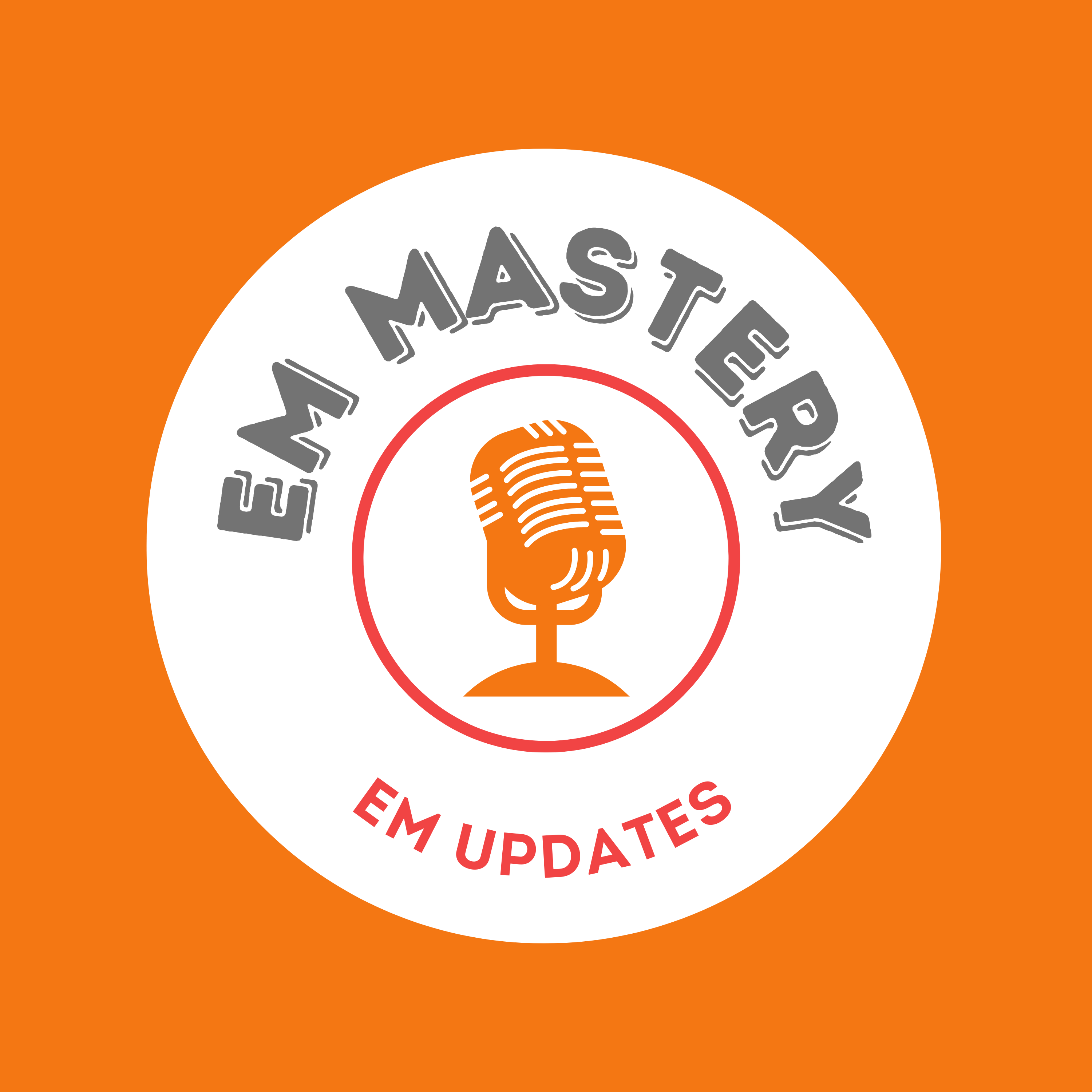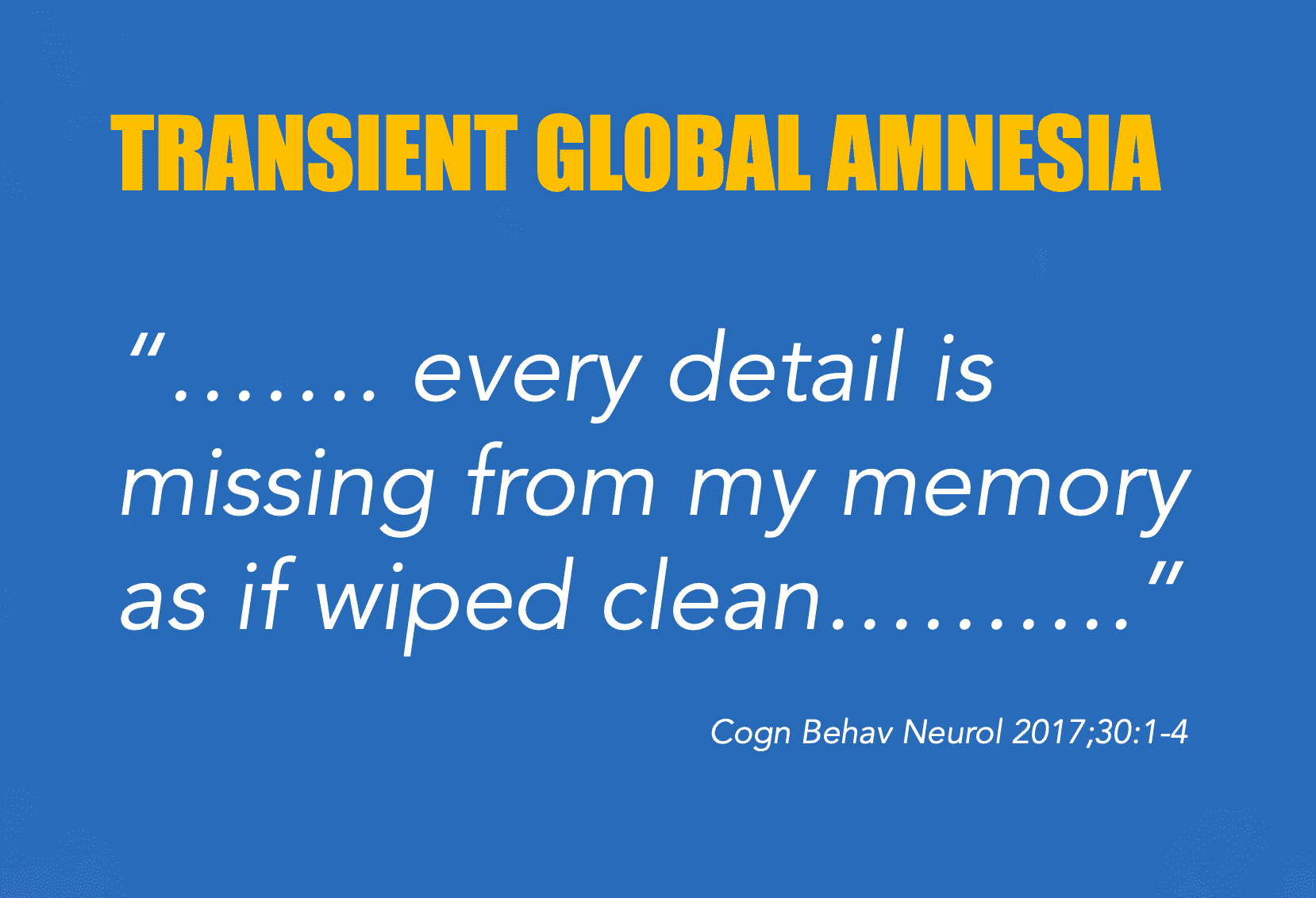CASE
A 59 yo musician, who has just completed playing violin in an orchestral performance. Is brought to the emergency department by his family who are concerned that he has no memory of that event, although his performance was of a high standard. For the past two hours he has been asking “Where are we?” almost every 30 seconds. His conscious state is normal, he recognizes all his family and he has a normal neurological examination.
This patient is presenting with Transient Global Amnesia (TGA).
CHARACTERISTICS OF THE CONDITION
This condition is characterized by:
- Anterograde Amnesia where the patient has an inability to retain new information for more than a few seconds. This is often seen in the form of repetitive questioning every 30 seconds, such as “Where are we?” or “What time is it”
- Retrograde Amnesia where the patient has no recent memory which can extend backwards from hours to days
The episode ceases in hours, however the patient has a gap in their memory of that episode, even though they are now able to lay down new memories. They may sometimes complain of a mild headache and some nausea and dizziness.
It occurs in older patients with a mean age found to be around 62 years of age. It rarely occurs in younger patients but there are case reports where it is diagnosed in adolescents and is related to physical activity or migraine attacks. Approximately 15% of patients may have an occurrence usually within 2 years and there is a higher risk of occurrence in patients with migraines. There may be some slight increase in the risk of stroke, but the literature differs.
Although the cause is not found in most cases, it appears that the condition may be brought on by significant physical or mental ‘shock’, including plunging into cold water, a medical procedure or a significant emotional event, such as hearing or a death.
DIAGNOSTIC CRITERIA
There are proposed diagnostic criteria from several authors in the literature. They include:
- In relation to the event
- It is witnessed
- It resolves within 24 hours
- It is limited to anterograde amnesia and repetitive questioning
- There is no change in the patient’s cognition otherwise.
- In relation to current or past medical history
- There is no head injury
- Concussion-like injury can mimic transient global amnesia
- There is no seizure activity or epileptic features or active epilepsy
- Non-convulsive seizures can affect memory, however they will be distinguishable by other aspects such as aura and frequent recurrence.
- There is no head injury
- In relation to examination findings
- There are no neurological signs during or after the episode
- There is no altered conscious state
INVESTIGATIONS
In most cases there is no investigation necessary, however we do find that imaging is performed to exclude a stroke or space occupying lesion and reassure ourselves of the diagnosis.
Patient with TGA will have transient (lasting up to 48 hours) and delayed (appearing after about 12 hours) punctate lesions in the hippocampus on diffusion-weighted MRI.
Reference
Ropper AH. Transient Global Amnesia. NEJM 2023; 388(7): 635-640




